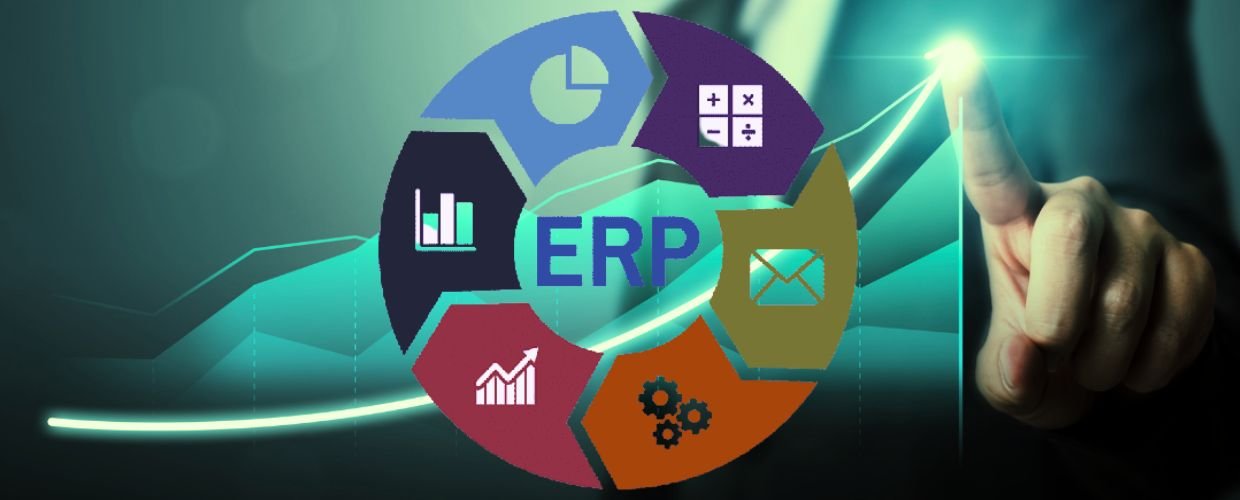Enterprise Resource Planning (ERP) systems are comprehensive software solutions designed to integrate and streamline various business processes across different departments within an organization. In this article, we will analyze the vital role of ERP systems in streamlining business processes and how they can transform organizations’ operations.
Centralizing Data and Information
In today’s fast-paced and competitive business landscape, organizations constantly seek ways to optimize their operations and gain a competitive edge. One powerful tool that has emerged to meet this need is ERP systems.
One of the primary benefits of ERP systems is their ability to centralize data and information from various departments and business functions. Traditionally, organizations had disparate systems and databases, resulting in data silos and a lack of visibility across different functions. This fragmentation often led to inefficiencies, duplicated efforts, and delayed decision-making processes.
ERP systems eliminate these issues by integrating data from various sources into a unified platform, providing real-time access to critical information. This centralized approach enables employees to make informed decisions quickly, enhancing productivity and streamlining business processes.
Process Automation
Manual procedures are not only time-consuming but also prone to human error. ERP systems automate repetitive and mundane tasks, reducing the chances of errors and freeing up valuable time for workers to concentrate on more strategic activities.
ERP systems eliminate manual intervention by automating order management, inventory control, and financial transactions, ensuring accuracy, efficiency, and consistency across business operations. This automation significantly streamlines workflows, reduces lead times, and enhances customer satisfaction.
Integration Across Departments
In many organizations, different departments often work in isolation, leading to communication gaps and inefficiencies. ERP systems break down these departmental barriers by facilitating seamless integration across various functions such as finance, human resources, procurement, and supply chain. Such as, when an order is placed, the ERP system automatically updates inventory levels, initiates the procurement process, and generates financial transactions in real time. This integration eliminates data discrepancies, enhances collaboration, and accelerates business processes, resulting in increased operational efficiency and improved decision-making.
Improved Supply Chain Management
A well-functioning supply chain is crucial for organizations to deliver products and services efficiently. ERP systems are vital in optimizing supply chain management by providing end-to-end visibility and control over the entire process.
ERP systems enable organizations to manage their supply chains effectively, from demand planning and forecasting to procurement, production, and distribution. By integrating inventory levels, production schedules, and customer demand data, organizations can make data-driven decisions, reduce lead times, optimize inventory levels, and minimize costs, ultimately improving customer satisfaction.
Enhanced Customer Relationship Management
Customer happiness is a top priority for any business, and ERP systems can significantly enhance customer relationship management (CRM). By integrating CRM functionality within the ERP system, organizations can capture and manage customer information, track sales interactions, and provide personalized services. This integrated approach gives organizations a holistic view of each customer, improving responsiveness, fostering stronger relationships, and delivering a superior customer experience. ERP systems empower businesses to anticipate customer needs, manage customer expectations, and provide timely and relevant support, ultimately driving customer loyalty and retention.
Real-time Reporting and Analytics
Effective decision-making requires access to accurate and timely information. ERP systems offer robust reporting and analytics capabilities, allowing organizations to generate real-time insights into their business performance. With a comprehensive set of predefined reports and customizable dashboards, stakeholders can monitor key performance indicators, track progress against targets, and identify areas for improvement. By analyzing historical data, organizations can uncover trends, identify bottlenecks, and make data-driven decisions to optimize business processes and drive continuous improvement.
Regulatory Compliance and Risk Management
Compliance with regulatory requirements and effective risk management are critical for today’s complex business environment. ERP systems help organizations stay compliant by providing built-in controls, workflows, and audit trails. These systems ensure that processes adhere to industry standards and regulatory guidelines, mitigating non-compliance risk and associated penalties. Additionally, ERP systems enable organizations to identify and manage risks effectively by providing visibility into potential vulnerabilities and enabling proactive risk mitigation strategies.
Conclusion
In conclusion, ERP systems are vital in streamlining business processes by centralizing data, automating tasks, integrating departments, optimizing supply chain management, enhancing customer relationship management, providing real-time reporting and analytics, and ensuring regulatory compliance. The benefits of ERP systems are far-reaching, transforming how organizations operate, improving efficiency, and enabling them to stay ahead in today’s competitive landscape. ERP systems will evolve as technology continues, adapting to new business needs and driving operational excellence across industries.



